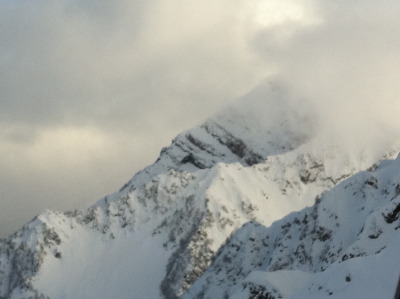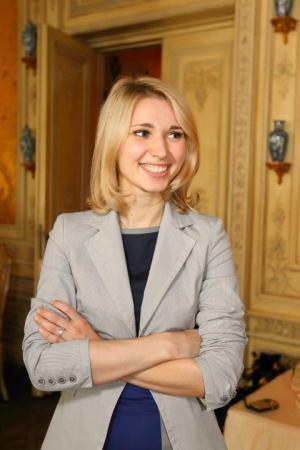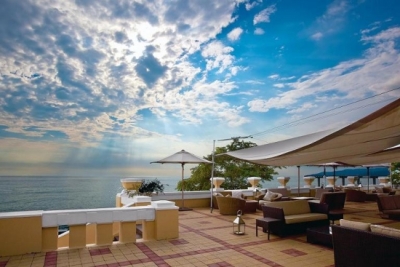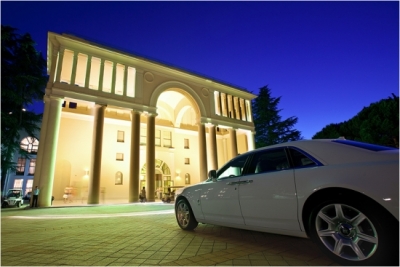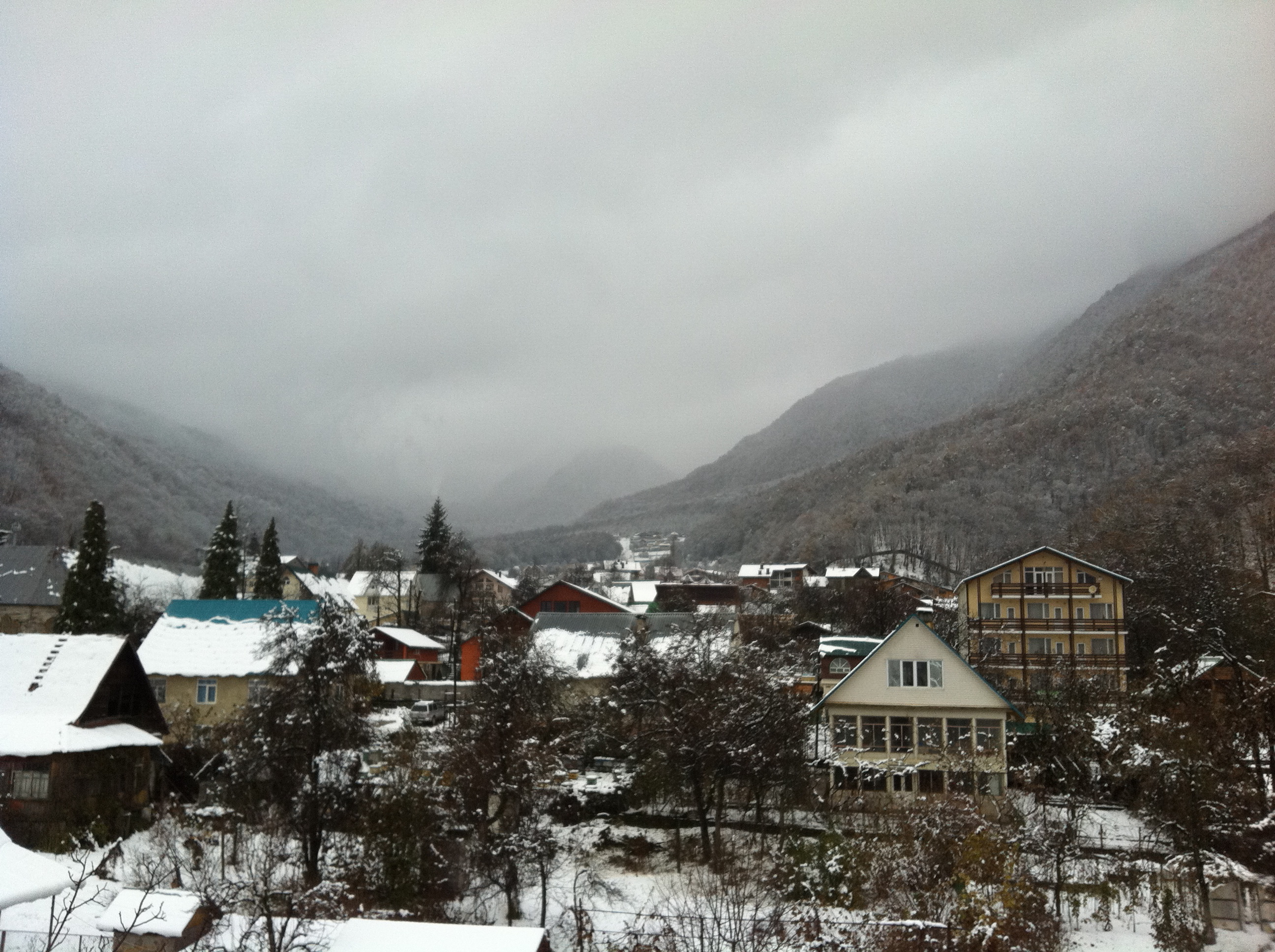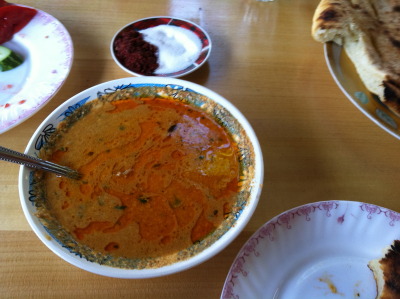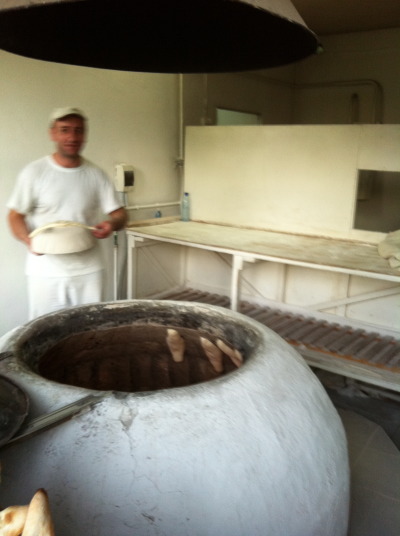On Top Of The World
Saturday, December 10, I spent the afternoon with Geir Olsen, General Director of Norwegian Snow Consulting. He is directing the construction of the alpine events at Rosa Khutor, which will host those events during the 2014 Winter Olympics. Geir showed me the mountain and talked about his long involvement with mountain sports, the Olympics and the last three years that he has spent building Rosa Khutor.
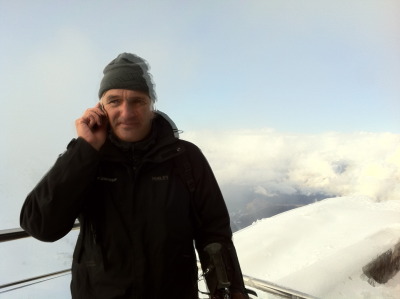
Geir Olsen- Rosa Khutor
We met at the base of the mountain and rode a series of 3 gondolas up to the top. When we started up, there was no hint at how big and how far back it extended. But as we rose quickly, I could see why this site had been chosen for the Olympics. The mountain is big. Geir explained that the base is about 500 meters in attitude, but the top of the mountain is just over 2,200 meters. He said that with the change in elevation, when snow conditions are not ideal at lower elevations, the top is often covered with powder. I asked about snow and what would happen if the weather did not cooperate. Geir told me that an extensive snow-making system is being put in place and the entire mountain will be covered with snow, regardless. As we talked about the mountain, I noticed the new Doppelmayr gondolas we were riding. He told me that they were indeed of the Austrian manufacturer and that a lift will be installed that will transport 4,500 spectators per hour to view the events in 2014. This will be the biggest system in the world. This was not the only top ranking that Rosa Khutor will have. The finish area for the alpine events will be the most compact in the history of the Olympic Games, as 30 gold medals will be won within 500 meters of each other. Geir is still planning the locations of more lifts to be installed and showed me a map of the mountain and how he views its completion. He told me that eventually it will have about half the skiable terrain that Blackcomb has in Canada, which, together with Whistler, is the largest ski area in North America.
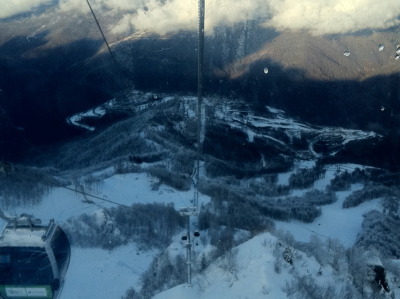
He also told me about avalanche preparation and safety preparedness at Rosa Khutor. From my point of view, nothing is being left to chance, either by Geir Olsen or Sochi 2014.
Everything that I saw on the mountain was top notch. Several times I was by myself and personnel were ready at hand to ask me if I needed anything, despite the fact that the mountain is not yet open for the season. Geir's mid-mountain office had a spectacular setting, with views of the wild Caucasus Mountains from every floor and window. Geir told me that Sochi2014 has spared no effort to make sure that he has the resources he needs to complete his task. He pointed out the fleet of Prinoth snow grooming machines and mentioned that Rosa Khutor had completed the largest order ever of the sleekly designed and environmentally-friendly machines.
I asked Geir about the challenges he faces as he goes about his work. He laughed and said the biggest one is that he has been so busy he has not had sufficient tine to work on learning Russian. But he said that he is surrounded with English speakers and that the Russian team assembled is hard-working and competent, so communication has not been an issue. He mentioned his respect for the group and that he really enjoys his work, saying " you can not buy a day like today."
Geir has been skiing since he could walk and is accomplished at both downhill and cross country skiing. During his youth, he was a competitive skier. He loves to ski and showed me a run at the top he likes that only the most expert would even attempt. However, the demands of Rosa Khutor keep him too busy to do much skiing now. Typically his day starts early and he continues until late, usually about 9 p.m. With World Cup Ski Racing coming to Rosa Khutor in February and the Olyimpics two years later, there is a lot to be done. But it is clear that Geir Olsen and the mountain will be ready for the challenges.
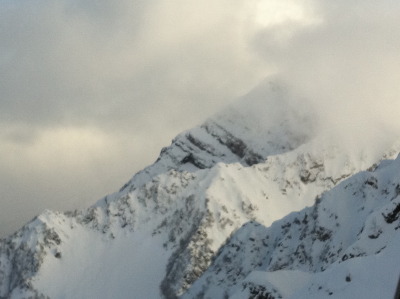
 1 Comment
1 Comment  Sunday, December 11, 2011 at 2:56PM
Sunday, December 11, 2011 at 2:56PM 







